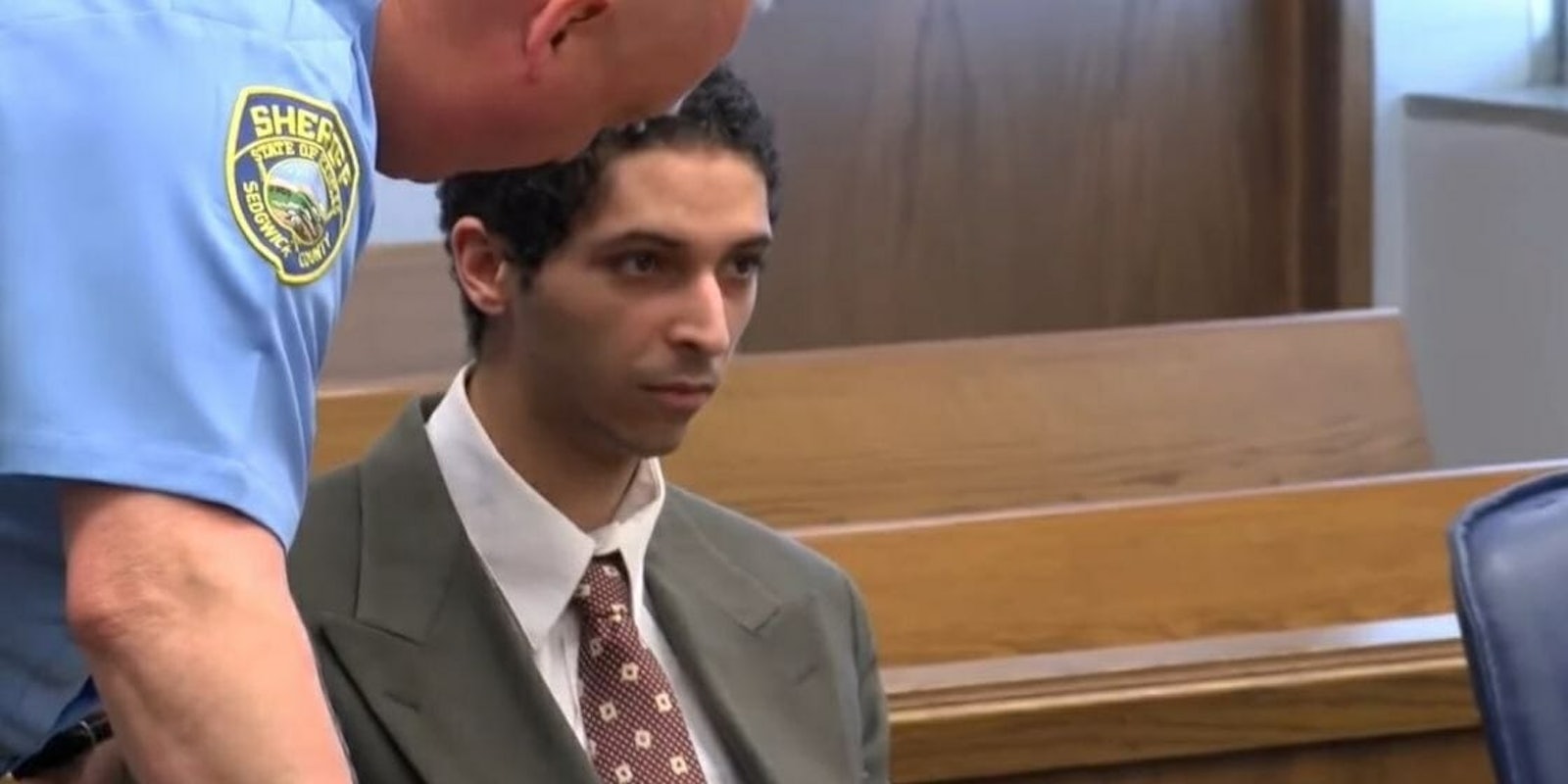The California man whose swatting prank resulted in a Kansas man’s death was sentenced to 20 years in prison on Friday.
Under a plea deal, Tyler R. Barriss pleaded guilty in November to 51 charges stemming from a fake 911 call about a hostage situation that led to police killing unarmed Wichita resident Andrew Finch, according to the Associated Press. In the call, Barris claimed he had taken his family hostage and was planning to kill them. The prank call was supposed to help settle an argument over $1.50 between two Call of Duty: WWII players.
Part of that deal was Barris would serve 20 to 25 years in federal prison, according to the AP.
The actual feud was allegedly between gamers Casey Viner, 19 and Shane Gaskill, 20. Authorities say Viner asked Barriss to help him retaliate against Gaskill after he became upset while playing a video game.
Viner apparently gave Barriss an address that Gaskill had given him and asked Barriss to swat Gaskill, not knowing that Gaskill had provided an incorrect address. Barriss followed Gaskill on Twitter and sent him some taunting direct messages before Gaskill challenged Barriss to swat him, authorities say. Gaskill also allegedly gave Barriss the incorrect address, a home occupied by Finch at the time.
Finch, 28, didn’t play video games at all and had nothing to do with the dispute. He, however, was shot by police after answering his door.
The Finch family has sued the police officers involved and the city of Witchita over his death. Prosecutors have declined to charge the officer.
U.S. District Judge Eric Melgreen called the case “uncharted legal territory,” according to the AP. He said the law hasn’t caught up to the technology.
Barriss apologized to the Finch family and took responsibility for what happened, contradicting previous statements on Twitter and in a YouTube interview.
“I didn’t get anyone killed because I didn’t discharge a weapon and being a SWAT member isn’t my profession,” he initially tweeted.
His Twitter account has since been removed.
On Friday, Barriss told the court, “If I could take it back, I would, but there is nothing I can do. I am so sorry for that.”
Barriss had pulled similar hoaxes in the past. Other fake calls made between 2015 and 2017 in Pennsylvania, New Mexico, Ohio, Indiana, Missouri, Michigan, Florida, Illinois, Virginia, Texas, Arizona, Maine, Massachusetts, Connecticut, and New York were linked to him, according to NBC.
The 20-year-sentence is also a strong warning to others who are thinking of using a retaliation tactic like swatting.
“We hope that this will send a strong message about swatting, which is a juvenile and senseless practice,” U.S. Attorney Stephen McAllister said. “We’d like to put an end to it within the gaming community and in any other contact. Swatting, as I’ve said before, is not a prank.”
Viner and Gaskill were charged with several crimes, including conspiracy to obstruct justice and wire fraud. They have both pleaded not guilty, but Viner has told the court he plans to change his plea at a hearing scheduled for April 3. Gaskill is scheduled for trial April 23.
H/T Associated Press
READ MORE:
- The 10 best gaming podcasts for every kind of gamer
- The best co-op video games for couples
- Call of Duty: Black Ops 4 is a streamlined return to the series’ irresistible charm
- Did a Call of Duty game get this Kansas man killed by police?
